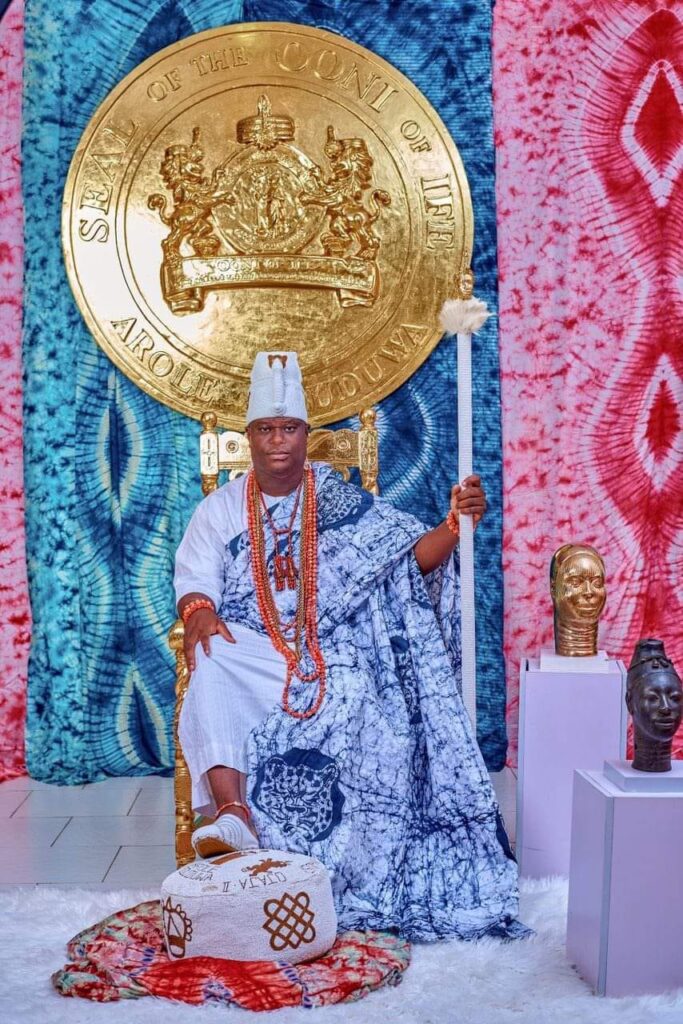
Ooni of Ife. Arole Odua . A paramount traditional ruler and monarch of the Yoruba kingdom of Ile-Ife
A HINT ON YORUBA CULTURE & HISTORY
Yoruba, one of the three largest ethnic groups of Nigeria, concentrated in the southwestern part of that country. Some of the yoruba people live in Benin and northern Togo. The Yoruba numbered more than 20 million at the turn of the 21st century. With a rich culture tradition, Yorubaland is one of the oldest Monarchs in the oldest surviving Monarchs in Africa.
Based upon the rich and fertile lands Yorubaland possesses, most Yoruba people engaging in both commercial and subsistence farming growing yams, corn (maize), and millet as staples and plantains, peanuts (groundnuts), beans, and peas as subsidiary crops; cocoa is a major cash crop. Others are traders or craftsmen.
The Yoruba chieftaincy system can be divided into four separate ranks: royal chiefs, noble chiefs, religious chiefs and common chiefs. The royals are led by the obas, who sit at the apex of the hierarchy and serve as the fons honorum of the entire system. They are joined in the class of royal chiefs by the titled dynasts of their royal families. The three other ranks, who traditionally provide the membership of a series of privy councils, sects and guilds, oversee the day-to-day administration of the Yoruba traditional states and are led by the iwarefas, the arabas and the titled elders of the kingdoms’ constituent families.
A Rich Food Culture
When morning dawns., its time for breakfast. Our breakfast is a myriad of choice. Some food are more common for breakfast, Lunch and Dinner but it is also flexible to eat those meals at other times of the day as well if preferred. Typically breakfast can be different types of rice dishes, or Soups (obe) with “swallow” (Okele).Foods like Akara and Moi Moi can also be had.
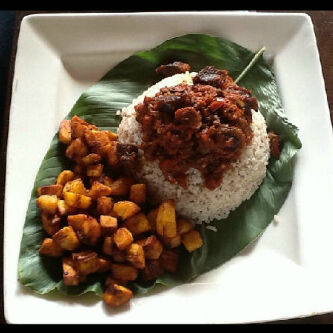
Ofada rise with fried plantain and beef
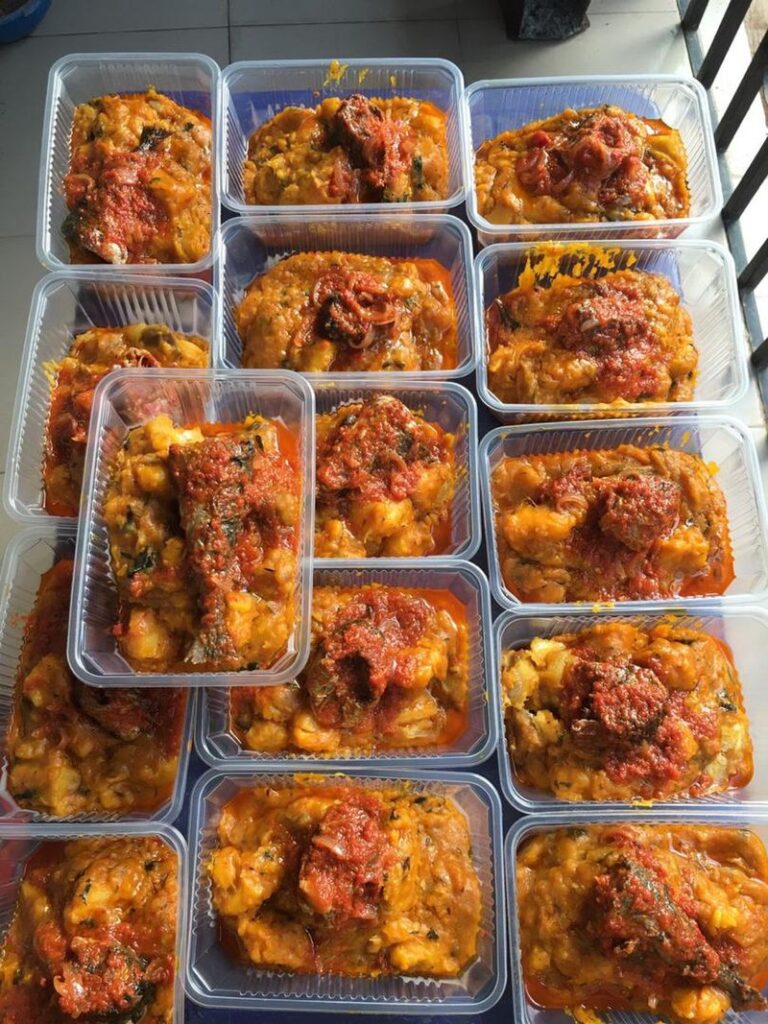
Asaro and fish
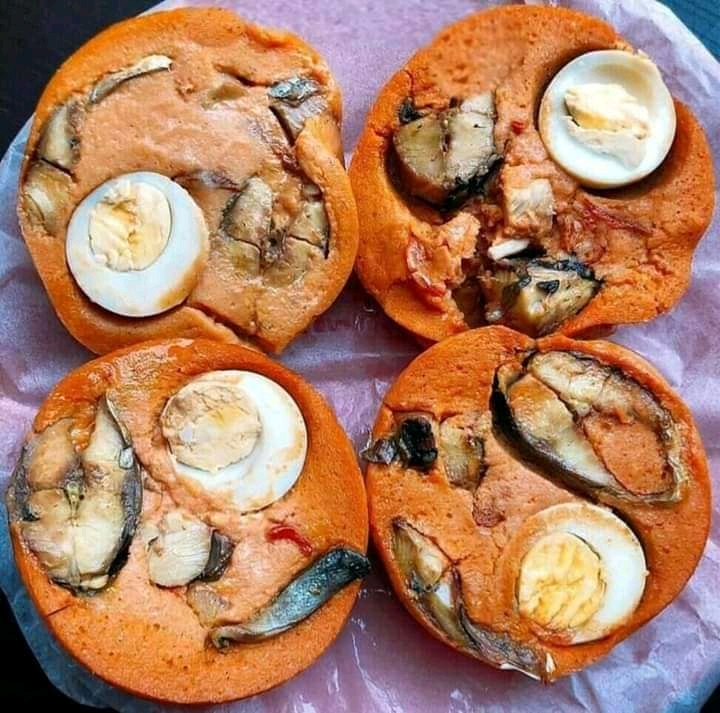
Moi moi with fresh fish and boiled eggs
Lunch
Lunch has a diverse range of dishes just like Breakfast. Here are some examples. Some popular Lunch menu include:
- Obe Egusi and Iyan : Egusi soup and pounded yam with assorted meat (Eran) or fish.
- Ewagoyin and agege bread : A spiced mashed beans with agoyin sauce with agege bread
- Jollof : Jollof rice with meat, fish, egg and salad or coleslaw with moi moi and dodo (Fried plantains).
- Fried rice : A local style fried rice with the same side options as the above
- Asaro : Yam porridge.
A Rich Fashion & Dress Code
Yoruba fashion and garment culture is rich with styles such as four-piece female of iro (wrapper), buba (blouse) and ipele (shawl) with the gele accessory (headgear) as well as the male agbada (robe), buba and, dansiki (baggy shirts), sokoto (trouser) and fila (cap accessory) – has been synonymous with Aso-Oke.

Our Rich Dance Culture
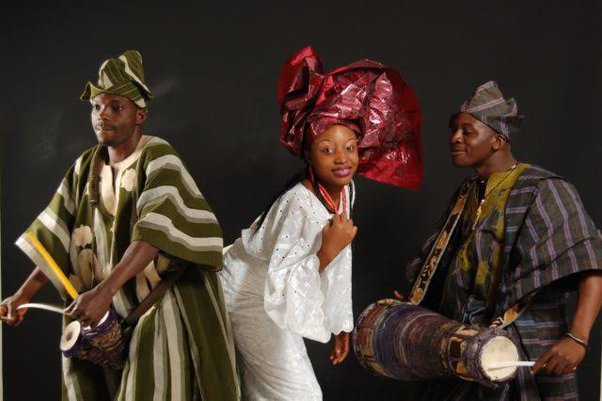
The Sakara drum is one of the four major families of Yoruba drums of Nigeria. The other families are the Dundun/Gangan or talking drum, the Batá drum and the Gbedu drum. Each family includes drums of different sizes, with the mother drum (iya ilu) playing the lead role and other drums playing in support.
Yoruba music and dance are not just artistic expressions; they are integral components of Yoruba identity and heritage. The rhythmic beats and captivating movements convey centuries of history, spirituality, and cultural pride.
The Yoruba Religious Beliefs
It is generally assumed that the proportion of citizens who practice Islam or Christianity are roughly equal and there is also a substantial number who practice traditional indigenous religious beliefs alongside Christianity or Islam. The predominant form of Islam is Sunni. Members of the Ahmadiyya Movement maintain a presence in Lagos and Abuja. The Christian population includes Roman Catholics, Anglicans, Baptists, Methodists, Presbyterians, and a growing number of evangelical and Pentecostal Christians and members of the Church of Jesus Christ of Latter-day Saints (Mormons).

Want to join OCU? Register Here
Contact Form
